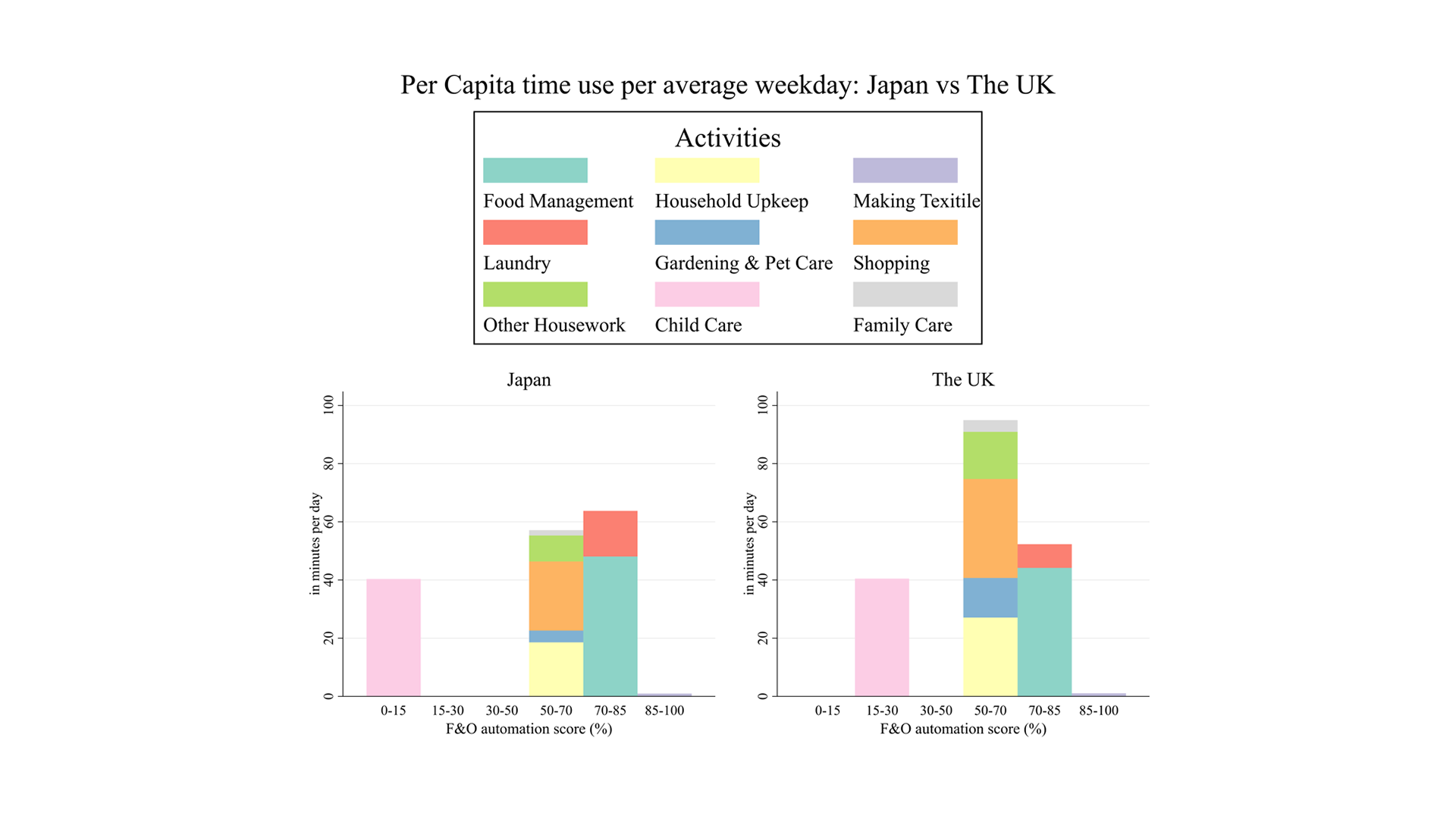Work package #4
Work Package Four will combine the likelihood of automation scores produced in Work Package Three with National Time Transfer Accounts (NTTA) data. It aims to provide a detailed picture of intergenerational and inter-gender support structures in future societies by considering population ageing, gendered patterns in domestic work participation, and the automation of unpaid work. The package will analyse how larger social groups (in terms of gender, generation etc.) support each other through domestic work and what is the likely impact of technology on the support transfers between these groups.
The first paper coming out from this work package is published in Technological Forecasting and Social Change as The future of unpaid work: Estimating the effects of automation on time spent on housework and care work in Japan and the UK.
This paper contains a simulation exercise using estimates of the likelihood of automation of paid work occupations as proxies for the future likelihood of automation of similar housework and care work activities. Future papers will use specific estimates developed by WP1 and WP2 (and combined in WP3) for more detailed predictions taking both supply of automation and demand for automation into account.
The simulations indicate that:
- Unpaid work is automatable, especially housework. The graph below plots simulated automatabilities of different types of unpaid work using automation scores from the seminal paper by Frey and Osborne (2017) against the average time people spend on these tasks in the UK and in Japan. Most unpaid work is automatable, with childcare an important exception, and the majority of domestic work time is spent in automatable tasks. This implies potential for substantial time-savings.
- Automation of unpaid work could increase everyone’s discretionary time. We use three different widely used labour market automation scores to estimate potential time savings to check the robustness of our estimates. We find limited differences between the three scenarios reflecting broad similarities in unpaid work task automatability estimates. Women benefit disproportionately from domestic work automation in all the scenarios. This is not surprising given their greater time commitment to unpaid domestic work.

